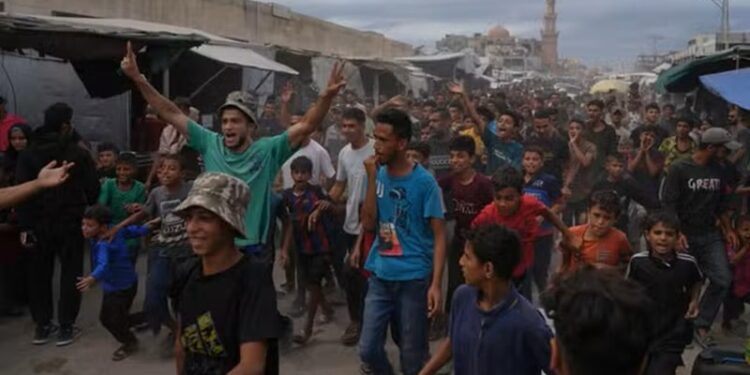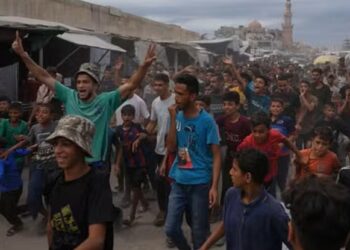The United Nations Palestinian Refugee Agency (UNRWA) has welcomed the ceasefire agreement between Israel and Hamas, calling it a “great relief”. It also announced its readiness to provide sufficient food aid to feed the population of Gaza for the next three months.
Philippe Lazzarini, Director General of UNRWA, declared on the social network X:
“UNRWA has food, medicine and other essentials for Gaza. We have enough to feed the entire population for the next three months. »
The agency said its warehouses in Egypt and Jordan contain sufficient stocks to cover the needs of the Gazan population during this period. However, the delivery of this aid remains hampered by access restrictions and difficult security conditions on the ground.
An alarming nutritional situation
A study conducted by UNRWA estimates that nearly 55,000 children under the age of six in Gaza are seriously malnourished, with around 12,800 severe cases. This situation is the result of months of blockade, destruction of infrastructure and restrictions on humanitarian aid. Malnutrition rates reached 16% in mid-2025, before a slight temporary improvement during a temporary truce.
Despite the availability of stocks, the delivery of aid remains a major challenge. Israeli authorities have imposed strict restrictions on entry points, limiting the number of humanitarian trucks allowed into Gaza. In addition, local infrastructure, such as roads and distribution centers, was damaged, further complicating the task of humanitarian teams.
Calls for strengthened international action
UNRWA calls on the international community to step up efforts to lift access restrictions and enable effective distribution of aid. Philippe Lazzarini stressed that inaction in the face of the humanitarian crisis could be perceived as tacit complicity in the suffering inflicted on the Gazan population.
The ceasefire agreement offers a glimmer of hope for the people of Gaza. If security and access conditions are improved, UNRWA and other humanitarian agencies could intensify their efforts to meet urgent needs for food, medical care and essential services. However, the situation remains fragile, and continued vigilance is necessary to ensure the effective implementation of aid.




